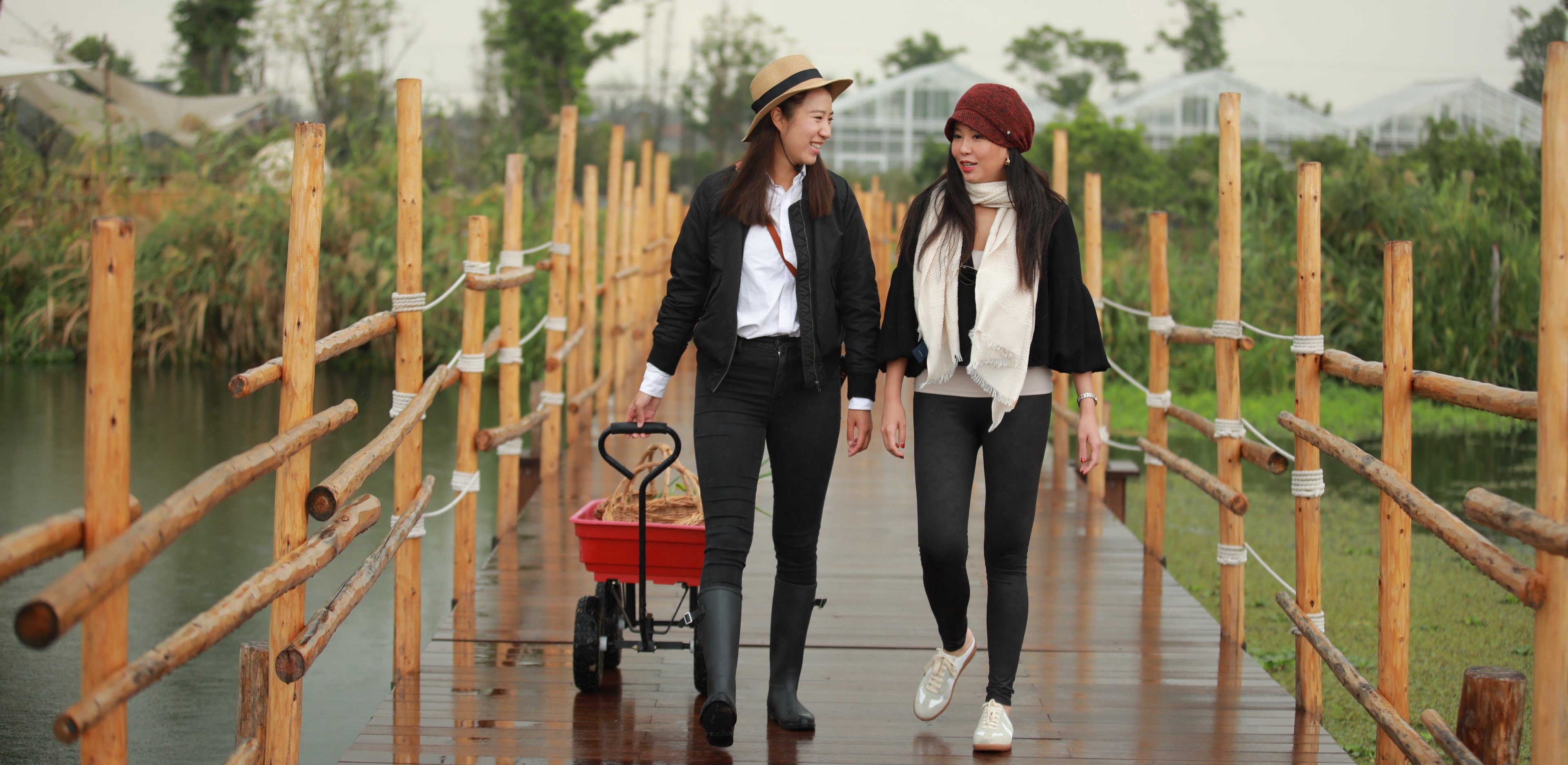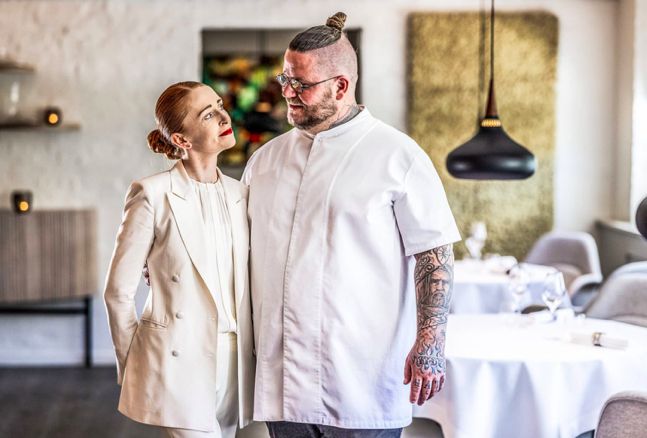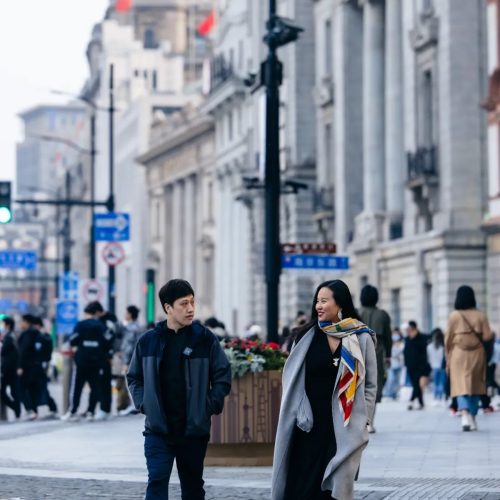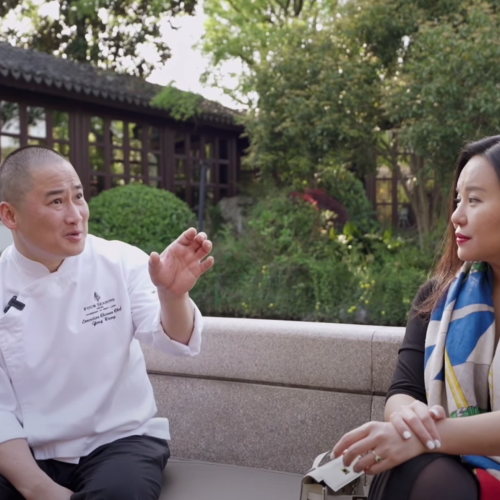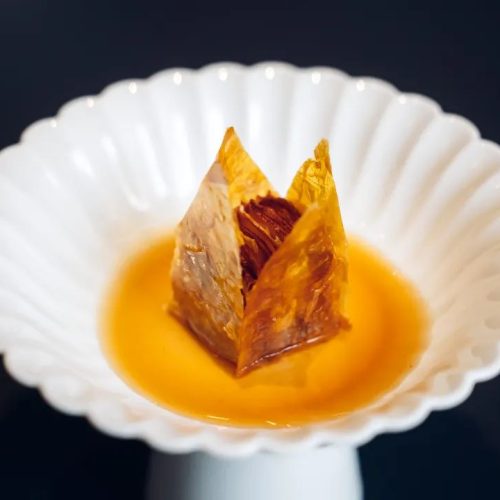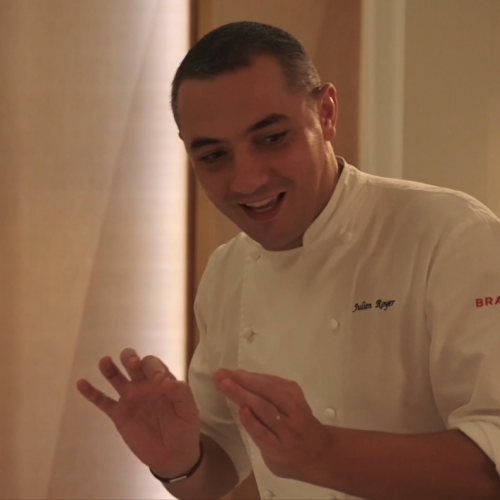70 minutes – Xitang Naera
Naera Hotel is about an hour and 10 minutes drive from Shanghai. As soon as you enter the hotel you realize that this is not an ordinary hotel. You feel like you are in a maze, with a winding path of cultural heritage bamboo weaves located at the entrance, a feeling that was deliberately created by designer Ju Bin. Naera hotel is not only a hotel, but also has a 3,000 acre ecological farm.


It was already dinner time when I arrived, therefore I simply ate at the Naera Hotel restaurant that night. Their Chinese restaurant and breakfast area are shared spaces, and I felt that during weekdays the space would feel quite empty. That being said, for me it didn’t matter as I quite like this sense of tranquility. For many years the hotel has been almost always full on weekends, but next time when I come back I will be sure to visit during a weekday.




On the first night at the Naera Hotel, the 65-square-meter garden room with sky view where I stayed was full of an aesthetic sense of space. The high-quality hotel accessories were all carefully selected with national brands however, what impressed me the most was the packs of soft tissue paper. I have traveled around the world and never have I stayed in a hotel that used such “paper”. Looking closely at all the details, you can feel the owner’s tender loving care without consideration of the cost, which gives a true ‘welcome to my home’ feeling. Treating customers like family members, only giving the tenants the best things really does make you feel special. Although I haven’t met the boss, it feels like I have known him for a long time.
Vegetables – From Farm to Table
Naera hotel has a great organic manor farm that provides a complete direct farm-to-table experience. When I entered the door of the farm, Chef Chen Zongchuan and a guide from Taiwan Amy were already waiting for me to pick the crops together. During the picking process, the chef taught us how to choose the right ingredients, such as when selecting a good eggplant, you have to pick one that is tender with no spots inside. On the same day, we picked a variety of green onions, wild rice and other vegetables.












I gathered all the vegetables and followed Chef Chen back to the kitchen to cook. Originally I thought this was going to be a simple famer’s dish, but I didn’t expect the result to far exceed my expectations.
For example, fresh water chestnut and walnuts simmered in a Chinese-styled vegetarian stock. The sauce was made from pureed roasted scallions and sweet and snappy peas were particularly delicious. The texture and taste was rich in layers and the natural and freshness of the ingredients were truly highlighted.
This turned out to be not just a simple farmer’s dish. Such a performance requires a high level of understanding of the ingredients and skill. Chef Chen used to work in Shanghai’s one-Michelin-starred vegetarian restaurant Dashu Wujie, which focused on the concept of using only the freshest of ingredients.





The snacks that impressed me the most were the corn salsa with bean germs, which tasted fresh and sweet, as well as the organic spring onion juice and water bamboo and crispy fried cordyceps flowers in oil. Chef Chen fried the cordyceps flowers before dipping them in an organic tea seed oil. This reminded me of the first time I ate Cordyceps flowers when I was at Chengdu’s Bridge.




There is a sesame peanut tofu side dish, the skin of the tofu is fried, similar to tempura and is very pleasing. The sauce is boiled with dried shiitake mushrooms, vegetarian stock, and kikkoman soy sauce, it is slightly sweet but preserves the original taste of the tofu. Chef Chen is a very warm individual.




In fact, when we were eating the Japanese-style bento, we were often amazed by its vegetable dishes as Japanese cuisine are typically water dishes. The vegetarian soup used in our Chinese vegetable dishes was very similar to how it is made in China. Chef Chen’s version of Chinese vegetarian soup contains dried shiitake mushrooms, dried porcini mushrooms, dried agaricus mushroom, fresh king oyster mushrooms, oyster mushrooms, winter bamboo shoots, corn, carrots, celery, baby cabbage- more than a dozen ingredients. There are also some secrets that we won’t reveal, but just know the they are very expensive.










Chef Chen’s meal opened my senses that indeed the dishes were not ordinary, that he has his own unique cooking philosophy with a set of vegetable dishes that have Chinese origins rather than a pursuit of western aesthetics. The idea of keeping things simple with priority given to the ingredients. This same approach of ingredients first methodology is on par with Michelin-starred restaurants.
It has become somewhat of a trend to use natural ingredients and methods and it has affected the way in which we now see less Chinese cuisine elements in Chinese restaurants, while you may also see the same dish in a French restaurant. This is the current cooking trend, but it makes me wonder whether the boundary between Chinese and Western cuisine may in the future become increasingly blurred.

Organic in itself is an aesthetic way of life that includes food, clothing, housing and transportation. Naera Hotel’s organic manor is moving forward with the time, striving to become the leader of organic life in China so that everyone has an opportunity to experience and adopt to this so-called organic life. Therefore, I had thought about designing a holiday so that people can experience farm picking and to learn how to recuperate through this kind of eating and lodging.
Duck – Chinese Cuisine Experience
That evening, we ate in the Chinese restaurant of the Naera Hotel which is well-known for its roast duck that uses 6 catties of duck fat. In the past I was a big lover of Peking duck, and ever since I heard that the chef was Li Xiaofei who previously worked at Quanjude I have been looking forward to the visit.
The result was not disappointing at all. The roast duck was crispy and fragrant, with the skin and meat separated. The dish was one with a bit more grease which adds to the flavoring, which can be good or bad depending on how you look at it, but I loved it. This roast duck was cooked perfectly and highlights the creativity and adventurous nature of the chef. It impressed me very much.
This kind of roast duck had a crispy edge that should be eaten whilst hot and goes perfect with a glass of Pinot Noir.
I have often wondered why the Chinese-styled roast duck has always surprised many western chefs. Many of the complicated Chinese craftsmanship is based on the accumulation of experience and time. The idea that a chef can spend his or her entire professional career creating roast duck is simply unheard of in the western world, and in a way this makes them artisans of their craft.


The Fried Chinese chives pocket in the Chinese restaurant were also unforgettable, not your typical crispy and greasy type, but this one is done via dry roasting. The skin is thin and the size is just right. Since the leeks are also from the hotel’s organic farm, they are very fresh and sweet with hardly any hint of spiciness of the leeks. The meal was very relaxing and chilled which made me eat there for two days in a row. If I could stay for another week, I would certainly have gone every day.
On this occasion, one place I did not have time to visit was the Japanese restaurant Sushi Kin. Naera hotel’s Japanese Chef Chen Jiajin comes from Fujian who has been involved in the Japanese food industry since he was 16 years old. He has worked in high-end sushi restaurants in Japan and Singapore for decades and has formed his own cooking philosophies. I will definitely come during my next visit.
Maze – white space
The overall accommodation experience at Naera Hotel was extremely good. The rooms have two sizes: 65 square meters and 130 square meters respectively. The hotel space is designed by Ju Bin, which has a luxurious sense of space and the bamboo wall is full of Zen. It’s easy to get lost in a maze-like hallucination, but I really enjoyed the feeling of being lost.
There are a lot of artworks in every corner of the hotel, and everywhere there are beautiful landscapes. Even if you do get lost in the hotel, you may find new discoveries wherever you go. The 4000-square-meter central waterscape courtyard expresses the spirit of advocating and respecting nature by means of spatial opening and closing, contrast, fusion and overlap, creating an artistic conception of “moving from different sceneries, with one scene and one emotion”.
The central waterscape in the courtyard is combined with the hotel’s indoor and outdoor areas. The design of the pool courtyard allows wind to be partially refracted, creating slight waves in the pool that provides the illusion of being by a lake. It is comfortable, relaxing and smooth.





I was constantly walking around indoors and outdoors, noticing the “lake”, scenery, pavilions, artworks, and the beauty of white space, a feeling which I never got tired of. For me, it is a way to get away from hustle and bustle of modern life, something which can be considered a real luxury.
Ding Yi, a master of abstract art, creates a charming artistic atmosphere for the hotel. The mosaic art pool created by Ding Yi himself is fired into art tiles with up to 64 pixels, with each piece put together by hand. Natural light also enters from the ceiling for added ambience. I plan to come swimming here during the day next time. The hotel also provides some ginger tea to let you cool off, and it is these little sweet touches that make all the difference in the experience, something rarely seen.


Before leaving Naera Hotel, I had a one-hour spa. It was an oil pressure meridian massage performed by a Chinese physician who had traveled from Shanghai to Xitang during the weekend. It is no exaggeration to say that it should be my best massage experience in ten years, especially that night. The trip here from Shanghai was rather hurried and made me very tired and moody. After finishing the SPA, I felt fully relaxed and calm.
On the whole, almost all aspects of the hotel and the manor are very meticulous, combining agriculture, culture, and aesthetics to give urbanites with a fast pace of life a place to rest and relax. This business model seems to be quite successful now and it is only one hour’s drive from Shanghai making it very easy to come for a quick getaway. In my opinion, it is best to stay for at least two nights and arrange the farm and SPA experience. “The art of doing nothing” is right here and is the best tribute to the hotel.
Undoubtedly, Naera Hotel is one of my favorite hotels in China. Naera Hotel’s organic manor is also one of the closest certified organic whole farm to Shanghai.
The brand name Naera is Icelandic and its original meaning is to nourish, nurture, and give nutrients. Treat every guest here with the most kind and beautiful arrangement. They believe that people’s body and mind need to be cared for like flowers.
On this small trip, I can certainly say that I did feel I was treated with a lot tender loving care!
naera
📍 588 Zhenguan Road, Xitang Ancient Town, Zhejiang Province, China
☎ 0573 – 8456 7777

转载或其他合作事宜
请联系微信号:tastytrip2020
欢迎关注
微博:TastyTrip
Instagram:_tastytrip_


